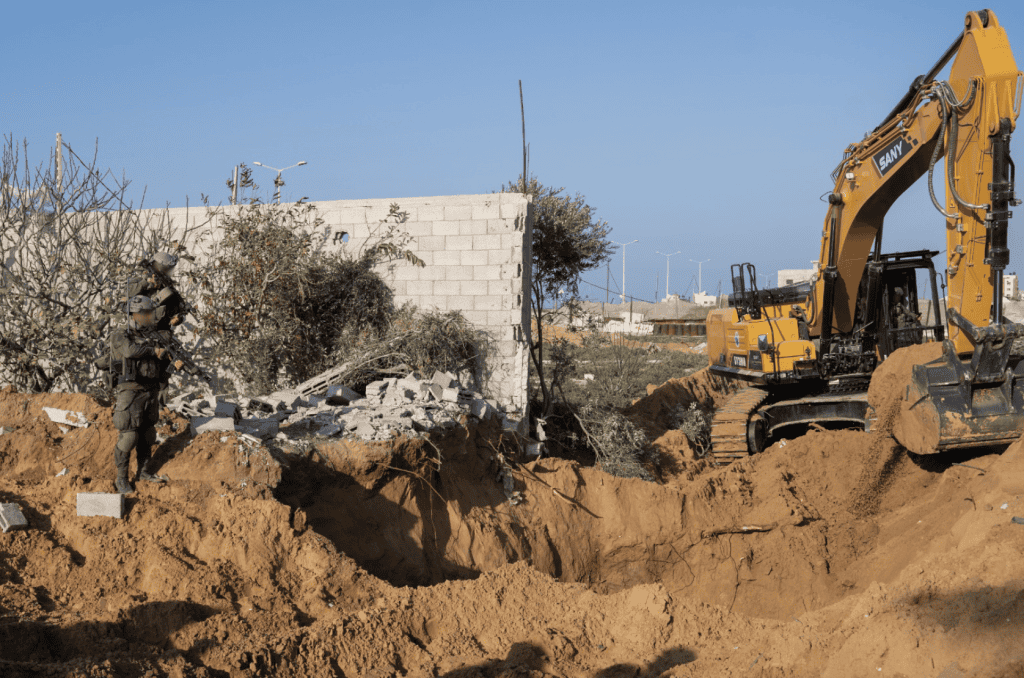SETH FRANTZMAN

On January 4, Israeli Minister of Defense Yoav Gallant met with U.S. Senior Advisor to President Biden, Amos Hochstein, at the Ministry of Defense headquarters in Tel Aviv. Israel Defense Forces Chief of Staff Lt. Gen. Herzi Halevi also took part in the meeting, as well as Israel’s Ambassador to the U.S., Michael Herzog. Israel is determined to return the 80,000 evacuated after the October 7 attacks to their homes in communities along Israel’s northern border. Israel has a Special Coordinator focused on the security situation at its northern border, according to a statement from Gallant’s office.
“Minister Gallant reflected the determination of Israel’s defense establishment to changing the security reality in northern Israel and along the border with Lebanon, and emphasized the top priority of enabling over 80,000 displaced Israelis to return to their homes,” Gallant’s office noted in a statement. “There is only one possible result – a new reality in the northern arena, which will enable the secure return of our citizens. Yet we find ourselves at a junction – there is a short window of time for diplomatic understandings, which we prefer,” Gallant said.
He said Israel will not tolerate the threat that Hezbollah poses to northern Israel, one in a series of similar statements from Israeli officials about being prepared for escalation in the north. This follows the killing of deputy Hamas leader Saleh al-Arouri in Beirut this week. While Iran, Hezbollah, and other pro-Iran groups have blamed Israel, Jerusalem has not taken responsibility for the killing. Halevi said on January 3 that Israel was in a high state of readiness in the north.
The tensions on the northern border come as attacks by Hezbollah appeared to decrease on Thursday, January 4. Rocket fire from Gaza has also decreased, although alarms did sound in Ashkelon on the morning of January 4. Despite relative calm on Thursday, there were several cross-border launches from Lebanon toward Manara and Misgav. The pro-Iranian Al-Mayadeen claimed that the attack on Misgav Am targeted IDF observation equipment. Al-Mayadeen also claimed there was an attack directed toward Shtula. A resident of the community who is a local security coordinator told Israeli radio Reshet Bet that he believed the community was targeted with a large munition fired from Lebanon, estimating it was a Burkan-style short range rocket that has a large explosive.
The IDF said that an Israeli fighter jet targeted a Hezbollah observation post near Maroun El Ras in southern Lebanon. “A short while after, IDF soldiers identified an anti-tank missile terrorist cell in the same area, which was struck by the IDF. Overnight, IDF soldiers fired mortar shells in order to remove a threat in the area of Rab El Thalathine along the Lebanese border,” the IDF said. Later in the day, the IDF said more Hezbollah sites were targeted in Yaroun and near Maroun el Ras. The IDF said it also targeted a “threat in the area of Ayta ash Shab, and a hit was identified.”
Israel continued to strike at Hamas in Gaza and carry out raids against terrorists in the West Bank. The IDF carried out a multi-day operation in the Nur al-Shams camp near Tukaram, an area targeted frequently by the IDF in the last year. The IDF said that a senior operative from Palestinian Islamic Jihad was eliminated in the northern Gaza Strip. While much of northern Gaza has been cleared of Hamas battalions in the fighting since October 7 — a priority for the IDF — there have been very few reports of degraded PIJ capabilities in Gaza. PIJ members were seen with Hamas when the latter handed over hostages during the pause in fighting in late November. PIJ is believed to hold some of the 133 hostages still held in Gaza.
Reporting from Israel, Seth J. Frantzman is an adjunct fellow at FDD and a contributor to FDD’s Long War Journal. He is the acting news editor and senior Middle East correspondent and analyst at The Jerusalem Post.
Are you a dedicated reader of FDD's Long War Journal? Has our research benefitted you or your team over the years? Support our independent reporting and analysis today by considering a one-time or monthly donation. Thanks for reading! You can make a tax-deductible donation here.
No comments:
Post a Comment